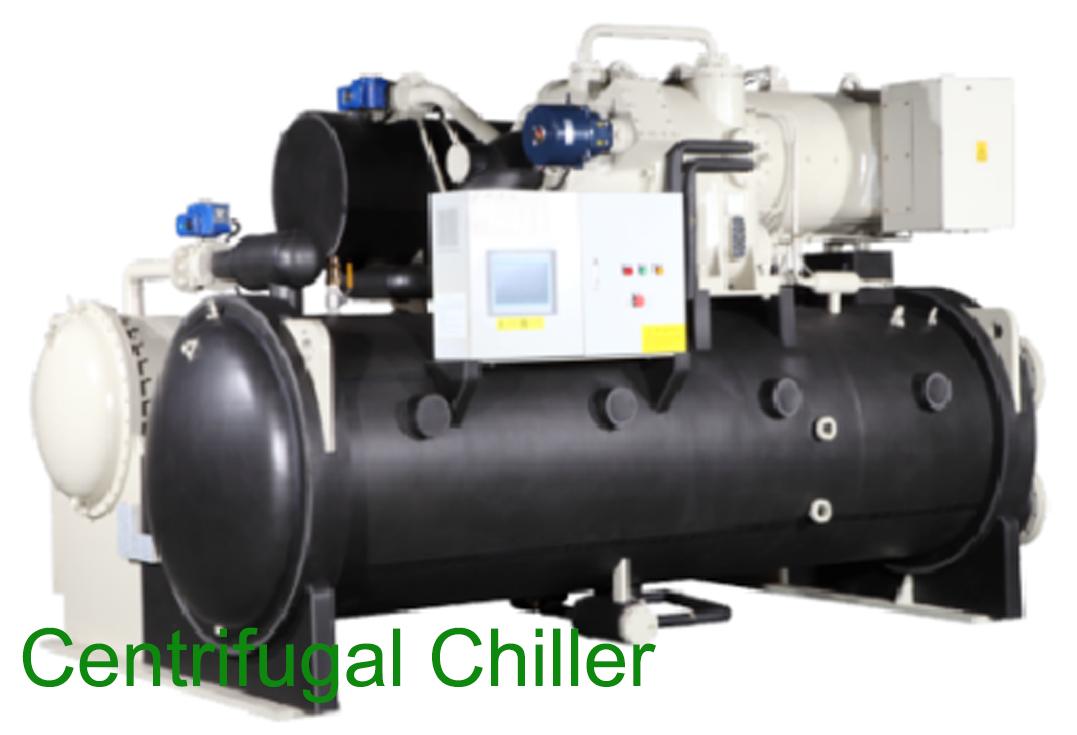Categories
New Blog
What is difference between centrifugal chiller and screw chillers?
Apr 02, 2024Water Chillers are generally divided into the following categories: screw chillers, centrifugal chillers, water ring heat pump units, plate and tube evaporative condensing screw chillers, thermal storage air conditioners, etc.
Screw chiller and centrifugal chiller are equipment that we often encounter. Below, Oumal Refrigeration will take you to understand the difference between centrifugal chiller and screw chiller?
What is a screw chiller?
The compressor adopts a screw type, hence the name screw chiller. The refrigerant coming out of the evaporator of the unit is a gas; after adiabatic compression by the compressor, it becomes a high-temperature and high-pressure state.
The compressed gas refrigerant is isobarically cooled and condensed in the condenser. After condensation, it changes into liquid refrigerant, and then expands to low pressure through the throttle valve and becomes a gas-liquid mixture.
The liquid refrigerant under low temperature and low pressure absorbs the heat of the cooled material in the evaporator and becomes a gaseous refrigerant again. The gaseous refrigerant re-enters the compressor through the pipeline and starts a new cycle. These are the four processes of the freezing cycle. It is also the main working principle of screw chiller.
2. What is a centrifugal chiller?
The biggest difference from the screw chiller is that it uses a centrifugal compressor.
It is a cooling system that uses the principle of centrifugal force to remove heat from the inside of the fluid. It is composed of centrifugal refrigeration compressor, evaporator, condenser, main motor, air extraction recovery device, lubrication system, control cabinet and starting cabinet. Some of these components are assembled in a decentralized manner, but most are "assembled" units in which each component is put together. The units are divided into fully enclosed, semi-enclosed and open types.

Both centrifugal and screw chillers are types of refrigeration systems commonly used for cooling in various applications. While they serve a similar purpose, there are some key differences between the two different chillers:
Working Principle:
Centrifugal Chiller: Centrifugal chillers use a rotating impeller and centrifugal force to compress and cool the refrigerant.
Screw Chiller: Screw chillers use two rotating screws (male and female) to compress and cool the refrigerant.
Capacity:
Centrifugal Chiller: Centrifugal chillers are typically available in larger capacities, ranging from several hundred tons to several thousand tons of refrigeration.
Screw Chiller: Screw chillers are available in a wide range of capacities, but they are generally suitable for smaller to medium-sized applications.
Energy Efficiency:
Centrifugal Chiller: Centrifugal chillers are known for their high energy efficiency, especially at full load conditions. They are designed to provide efficient cooling for large-scale applications.
Screw Chiller: Screw chillers also offer good energy efficiency, but their efficiency may vary based on operating conditions and load levels.
Operating Characteristics:
Centrifugal Chiller: Centrifugal chillers are often used in applications with varying loads and where precise temperature control is required. They can handle load variations effectively and provide good part-load performance.
Screw Chiller: Screw chillers are suitable for applications with relatively constant loads, as they are generally more efficient at full load conditions. They are commonly used in commercial and industrial settings.
Maintenance and Service:
Centrifugal Chiller: Centrifugal chillers typically require specialized maintenance and service due to their complex design and construction.
Screw Chiller: Screw chillers are relatively easier to maintain and service compared to centrifugal chillers, primarily due to their simpler design and fewer moving parts.
It's important to note that the selection between centrifugal and screw chillers depends on various factors such as cooling requirements, capacity, energy efficiency goals, load characteristics, and budget considerations. Consulting with a professional HVAC engineer or chiller manufacturer can help determine the most suitable chiller type for specific applications.